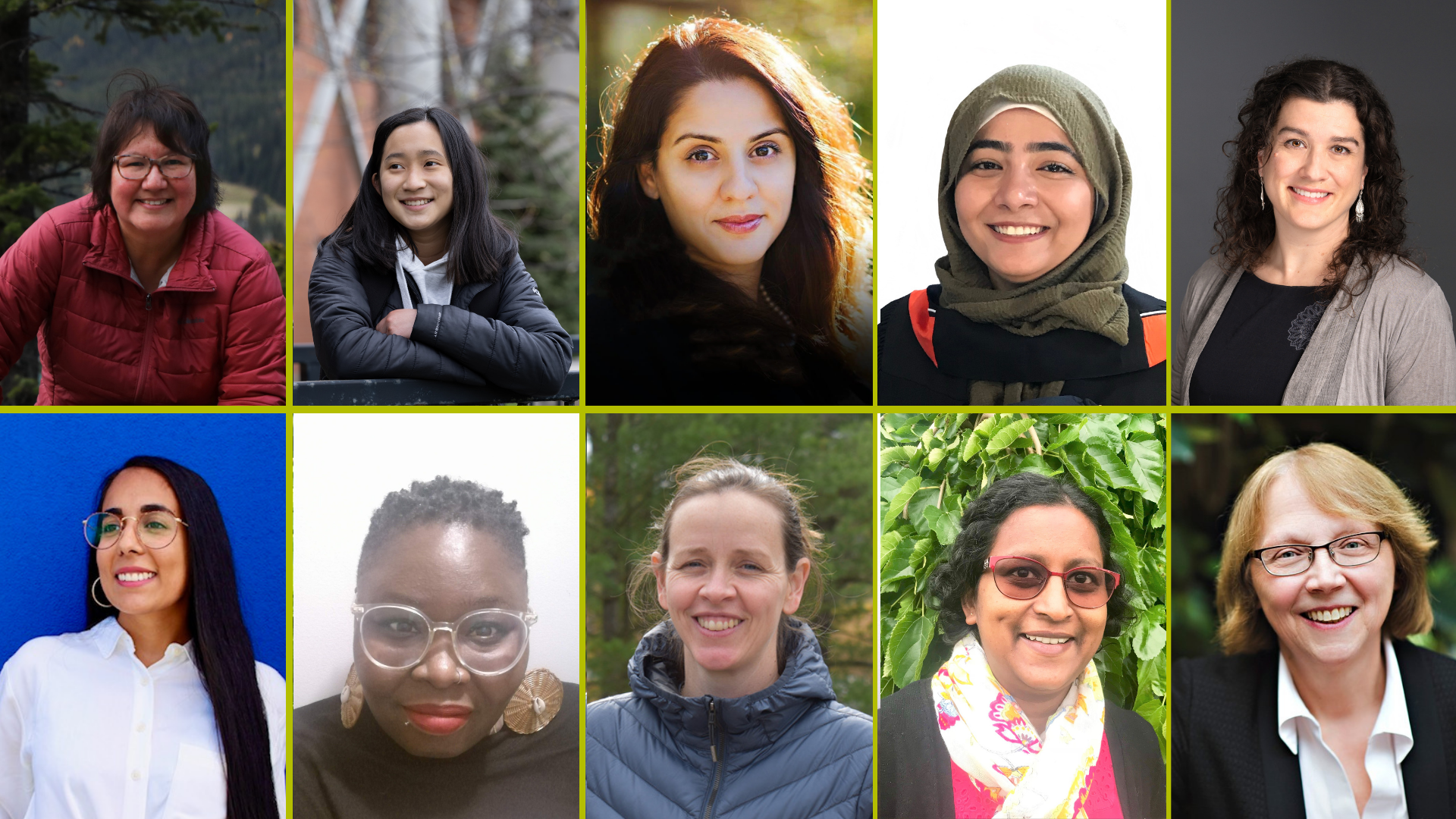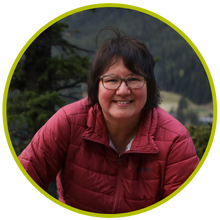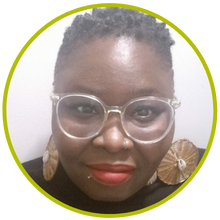
At Environment, it’s part of our mission to create a gender-equal community that is inclusive and celebrates women’s achievements. We believe it’s critical to our sustainable future.
The International Women’s Day (IWD) celebration presents an opportunity to hear from the different diverse voices on their experience on this year’s theme #BreakTheBias.
Many of the initiatives in our faculty are led by women. And the positive impacts of these initiatives have transformed the discourse on climate actions, improved economies, influenced policies and decisions on sustainability, improved living standards and challenged age long biases and practices, amongst others.
Amidst all the positive inroads in celebrating women’s achievement today, we are reminded of our checkered collective history and existing belligerent practices that target women. We see these practices in the communities we live in, workplaces and institutions of learning.
As part our of IWD 2022 celebration we are highlighting the different diverse views that lend voice on past experiences in a bid to shape women’s future for good, irrespective of their race, origin, colour, religion, immigrant and newcomer status, or age.
Here are the different perspectives and experiences from the women in the Faculty of Environment that reflect this year's International Women's Day theme #BreakTheBias:

Melanie Goodchild
I have been supported and uplifted by other women in my career. For instance, in 2015, I was selected by the International Women's Forum (IWF) to participate in the IWF Global Fellows Program, a yearlong intensive leadership development experience, sponsored by Harvard Business School and INSEAD. The Fellows Program was launched in 1994 with seed-funding from the U.S. Labor Department as a direct result of the Glass Ceiling Commission and annually convenes approximately 35 Fellows from around the world. I now support Ashoka Global's Women's Initiative for Social Entrepreneurship (WISE) led by Ashoka Arab World’s Regional Director and Vice President of Ashoka: Innovators for the Public, Dr. Iman Bibars. As an Indigenous woman from a colonized country in the global North I am honoured to stand with and support this important work being led by women in the global South, that aims to elevate the number, knowledge, and power of women in social entrepreneurship by redefining success from a gendered lens and celebrating the unique ways in which women successfully lead and make impact. Women uplifting women has been a significant aspect of my experience in realizing a gender-equal world. Miigwetch (thank you) for listening to my story.
 Michelle Angkasa
Michelle Angkasa
“…It was hard to get a word in. I was interrupted again. What was supposed to be an opportunity to present our campaign turned into 30 minutes of rants about his work.”
This is a common experience for many women. In the environmental advocacy space, I’ve bumped up against the status quo in many different forms: male-dominated decision-making tables, stories of female politicians burning out and quitting, the persistent devaluing and trivializing of non-male lived experiences.
I think a lot about intersectionality in my line of work. As a young, female, and racialized person, I know the odds are stacked against me. I’ve seen what kinds of knowledge we deem important, and which voices we tend to listen to. I’ve struggled with impostor syndrome. But it’s critical to listen to young non-male voices. Not only do we have the moral clarity to speak truth to power, we also have the most at stake. We need to rethink which perspectives to centre when we move toward building a better future. I have hope that this immense youth-led momentum for climate justice will create a big enough wave to raise the tide for everyone, especially those who have traditionally gone unheard.
 Maryam Latifpoor-Keparoutis
Maryam Latifpoor-Keparoutis
An immigrant and child of professionals who fled war, sacrificed, and rebuild their lives - my journey into Post-Secondary Fundraising was by luck, investment, and mentorship by super-women and men who became the foundation for my network, and my determination to impact positive change.
My grandmother taught us that nothing was impossible if you worked at it and believed in what you wanted to achieve. Entering University at 16, I had a limited network and knowledge of financial support. I secured part-time jobs across my University to pay for school. A classmate told me about an Alumni Relations role. My first interview with my future manager involved being asked why a "young pretty girl" wanted the job. At the time, I didn't understand why I felt uncomfortable, and went on to share my professional skills and how I could contribute. I moved from this organization to two other Universities where I was given opportunities and mentorship by colleagues who helped me grow, expand my professional knowledge and advance in my career. Throughout my 26-year career, I have had the privilege to enable student access to education, and see some amazing ideas come alive. This profession helped me pay for school and support my family who sacrificed for my future. I try to continue the positive cycle and pay it forward by mentoring students and raise a son who understands the privilege he has because of the sacrifices of so many including those whose lands we occupy.
 Dina Amer
Dina Amer
Bias isn’t always intentional, but like its counterpart, if it goes unchecked it can be as damaging. Growing up to feministly aligned and supportive parents, it never came down to being provided less opportunities, but to what culture deemed appropriate for women. My parents and I have a running joke that we still use today. Whenever I would ask permission to do something and they would say no, I would follow it up with “if my name was ‘whatever generic guy’s name’ I can come up with on the spot, “would you give me the same response?”.
I am usually met with smirks and then they’d agree to whatever I was asking. Their no’s never came out of a place they created for what women can and cannot do, but out of what culture deemed “safe” or “acceptable” for women at the time when my parents were growing up. It was less about holding me back and more about them passing on what they were taught. Bias doesn’t always have to be out of maliciousness, it can be so embedded into a culture’s way of protecting people that it isn’t apparent from the inside, but this isn’t news to those affected.
 Marta Berbes
Marta Berbes
To me, breaking the bias has to do with making visible that which is invisible. Oftentimes women do a lot of invisible work, particularly around family responsibilities. I had my two children during my PhD and postdoctoral years. It was a lot of work during a very uncertain time of my career. For the most part, it was also invisible work. Or maybe just invisibilized. Part of it was the lack of sleep and the brain fog but, also having to ask for accommodation during a campus visit so that I could breastfeed my baby. It was having to pump in random places because campuses and conference halls lack lactation rooms. It was having to facilitate a workshop with a baby on my hip because I did not have maternity leave. It was skipping conference sessions because I was certain that my breasts would explode if I stayed another half hour. Through it all, I found other women who, at the right moment, with a wink and a nod told me “You got this”, “It gets easier”, or offered help. This is exactly what I plan on doing when I see the next flustered parent at the next conference.
 Puninda Thind
Puninda Thind
Breaking the bias means shifting mindsets and recognizing that systems-level changes are required to create anti-oppressive and inclusive communities and workplaces. As a young woman of colour growing up in Canada, I didn’t see myself reflected in the mainstream environmental movement. When I entered the workforce, seeing women of colour in leadership positions was and is still rare. I’ve had to push extra hard to build networks in this space to get where I am, and I am conscious of how important it is to broaden the tent. In my career, I have been fortunate to work with empathetic leaders who believed in my abilities and created opportunities for me. Breaking the bias is not about just aiming for representation. It is about ensuring that we are not reproducing the oppressive practices, structures, and environments that have created barriers for marginalized groups in the first place. It is about creating opportunities, shifting the power, and recognizing new forms of leadership that are centred on empathy and humility. I am grateful for the community of sustainability professionals who share these same ideals. I am a big proponent of bringing up others along with you while progressing on this journey.

Lowine Hill

Madu Galappaththi

Sarah Ghorpade
As researchers, we believe that breaking biases should start within ourselves and our own research spaces. This is why #BreakTheBias is a central element of a faculty-wide initiative that we co-lead to decolonize methodologies for sustainability research. Our initiative encourages an introspection in how our research practices can perpetuate existing power imbalances. Our focus is on the people and communities we work with. They are often the most powerless within our research space. We start to #BreakTheBias by looking at our own values, biases, and assumptions, which directly shape how we relate to research participants, value their expertise, knowledge and lived experiences, and interpret their viewpoints. Within our initiative, we blended this approach in designing the specific activities that we undertake. We continue to make progress through a Workshop Series where we collectively explored a step-by-step process to identify issues with our current research practices, and a Speakers Series to hear from experiences of some of the trailblazing researchers across Canada and the globe. We also just launched an eLearning Course for graduate students. Ultimately, we hope to transform our mindsets to take responsibility and be accountable for our actions, and our research methods to be more respectful, reciprocal, and just.
 Jean
Andrey
Jean
Andrey
I grew up in the 1950s and 60s in rural Ontario, an idyllic youth in many ways, but one where gender norms dictated how we dressed, what chores we did, what fun activities were acceptable. Girls were required to wear a skirt to school. Girls in my family did not clean animal pens but also were not allowed to see calves being born, unlike our male cousins and neighbours. Girls were expected to sing in the church choir and watch the boys at the village ball diamond. I desperately wanted to play organized softball. For hours each summer, I practiced throwing and catching a ball against a wooden shed. When I was 13, my Mom decided to create and manage the first ever girls’ sports team for our village – a softball team. My Dad built a pitching mound and screen for me in the orchard. I recall boys jeering, “They throw like girls”. These were not intended to be a compliment. But, as I went on to play competitive softball in Waterloo, Kitchener and Calgary, and as I took from this experience that girls can be and do anything, I have become more proud that I throw like a girl.